You are using an out of date browser. It may not display this or other websites correctly.
You should upgrade or use an alternative browser.
You should upgrade or use an alternative browser.
Filters....use or don't use?
- Thread starter caa1277
- Start date
wbeem
DIS Veteran
- Joined
- Apr 15, 2010
- Messages
- 1,396
Is there any point to using filters like UV or polarizing? Just got my first SLR and I know they make them for them, but I've never used one. Any benefit to using them?
UV, not so much. A polarizer can be quite useful to reduce glare. For example, you could be shooting water or a window without a polarizer and the surface will just give you a lot of reflection. Put on the polarizer and you can see what's under the water or behind the window. Keep in mind that it will cut a stop of light when you use it.
photo_chick
Knows a little about a lot of things, a lot about
- Joined
- Mar 1, 2007
- Messages
- 5,123
I agree with wbeem. UV filters can cause more problems than they solve. But a polarizer is a very handy tool to have in your bag.
littlekidagain
Mouseketeer
- Joined
- Nov 22, 2006
- Messages
- 184
I started out using UV filter and now I feel I wasted my money. Photo Chick and wbeem mention polarizer filters which I agree with. Now I pretty much only use Neutral Dentistry filters to slow my shutter speed during the day.
disneybaker
Mouseketeer
- Joined
- Aug 15, 2012
- Messages
- 79
Used a uv filter for past 20 years on every rebel I've had, don't like pictures without it
Pixel Dust
It's a trap!
- Joined
- Feb 11, 2012
- Messages
- 536
The UV filters are no longer necessary. They were a must using film. As film is sensitive to UV light, it would cast a bluish haze outdoors.
Digital sensors have the UV (and IR) filters built right into them. Adding an additional UV filter does nothing to improve the image. Many would argue that adding that extra glass would degrade the photo, make it less sharp or less contrast. Any improvement is a placebo effect.
UV filters (or plain clear filters) definitely increases the chance of flare and reflections in the lens. Here is my mistake. On the left, you can see the reflection of the bright lights from the right. This wasn't a cheapo brand filter either. It was taken with a Hoya UV Multi-Coated filter. Which is now collecting dust.
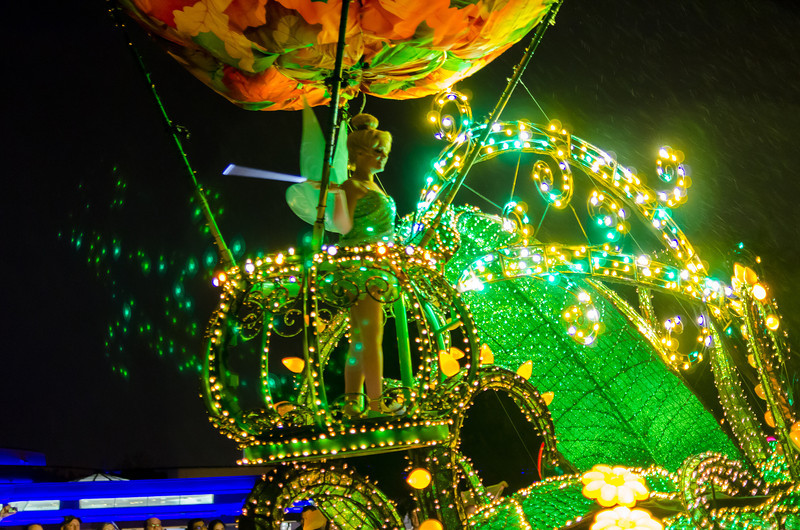
Polarizing filters can be very useful. Like others have said, they can reduce reflections off of water and glass, or have the sky a deeper blue and vegetation more vibrant. Here are my samples.
Digital sensors have the UV (and IR) filters built right into them. Adding an additional UV filter does nothing to improve the image. Many would argue that adding that extra glass would degrade the photo, make it less sharp or less contrast. Any improvement is a placebo effect.
UV filters (or plain clear filters) definitely increases the chance of flare and reflections in the lens. Here is my mistake. On the left, you can see the reflection of the bright lights from the right. This wasn't a cheapo brand filter either. It was taken with a Hoya UV Multi-Coated filter. Which is now collecting dust.

Polarizing filters can be very useful. Like others have said, they can reduce reflections off of water and glass, or have the sky a deeper blue and vegetation more vibrant. Here are my samples.
No filter
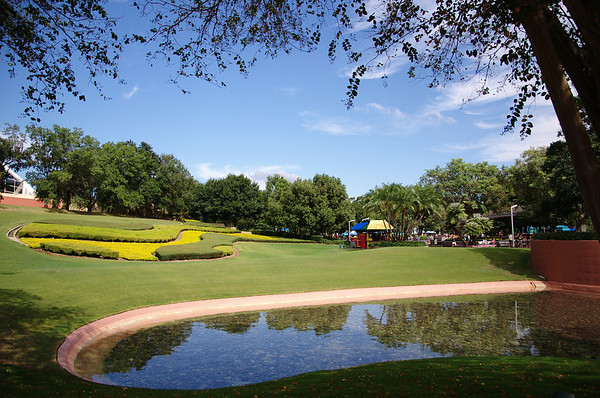
With a polarizing filter
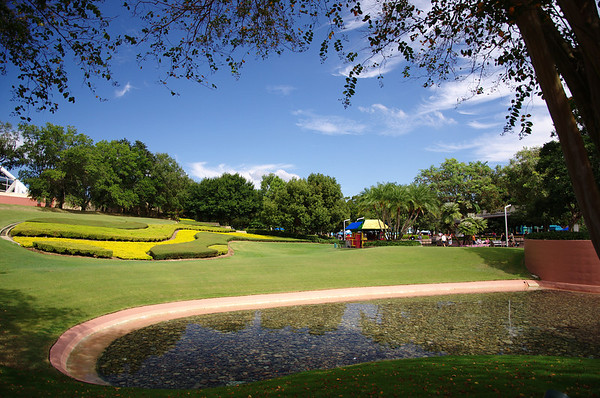

With a polarizing filter

/
MikeandReneePlus5
DIS Veteran
- Joined
- Sep 28, 2010
- Messages
- 2,136
I like my polarizing filter, but you really nned to be at the right angle to the sun. Or maybe I'm using it wrong. See this example where some of the sky isn't polarized becasue the light isn't at the right angle.
Is this avoidable?
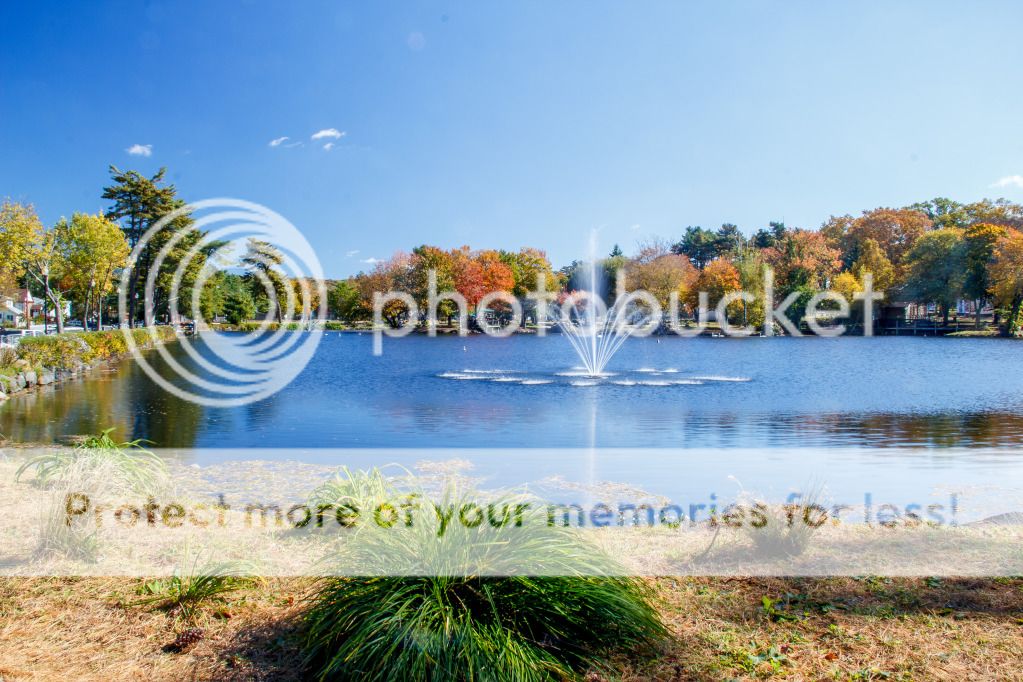
Is this avoidable?

photo_chick
Knows a little about a lot of things, a lot about
- Joined
- Mar 1, 2007
- Messages
- 5,123
The UV filters are no longer necessary. They were a must using film. As film is sensitive to UV light, it would cast a bluish haze outdoors.
Digital sensors have the UV (and IR) filters built right into them. Adding an additional UV filter does nothing to improve the image. Many would argue that adding that extra glass would degrade the photo, make it less sharp or less contrast. Any improvement is a placebo effect.
Yep. They don't do anything good with digital. And newer films do not have color shift from UV as much as older films so a lot of film photographers forgo the UV filters now as well.
mom2rtk
Invented the term "Characterpalooza"
- Joined
- Aug 23, 2008
- Messages
- 62,576
I like my polarizing filter, but you really nned to be at the right angle to the sun. Or maybe I'm using it wrong. See this example where some of the sky isn't polarized becasue the light isn't at the right angle.
Is this avoidable?

I do know polarizing filters can add vignetting at ultra wide angles. That looks like a fairly wide shot. Maybe that's what's going on here.
cpbjgc
Earned My Ears
- Joined
- Jan 25, 2005
- Messages
- 1,501
I like my polarizing filter, but you really nned to be at the right angle to the sun. Or maybe I'm using it wrong. See this example where some of the sky isn't polarized becasue the light isn't at the right angle.
Is this avoidable?

Like Mom2RTK said, you get this uneven polarization with a wide angle lens. It's not really avoidable, though it can be more or less pronounced than you have here, depending on where the sun is in relation to the shot you are taking. My only advice is anticipate it will happen and either adjust your composition, or use the effect creatively in your composition.
Gianna'sPapa
DIS Veteran
- Joined
- Aug 16, 2008
- Messages
- 3,976
I agree with most everyone about the UV filter. There is only one time that I use it and its only for added protection. I photograph Team Demolition Derby which is run on a wet, mud track. The mud and mud clods are flying everywhere. I can't count the number of times my cameras have been hit.

TDD5 0932 by Terry McGraw Photography, on Flickr
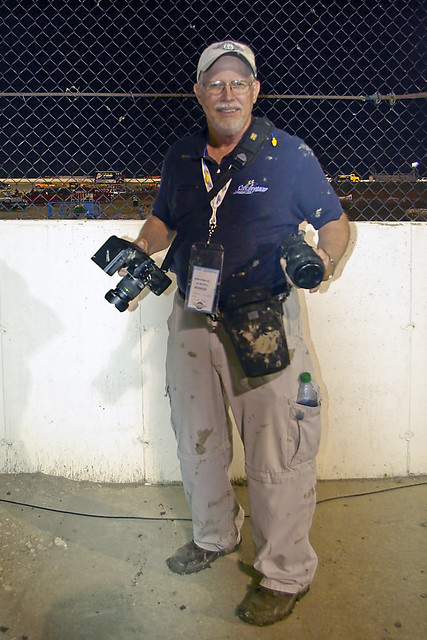
TD3 K 9132 by Terry McGraw Photography, on Flickr
I use the polarizing filter (and my ND filter) quite frequently for reasons the others have mentioned.

TDD5 0932 by Terry McGraw Photography, on Flickr

TD3 K 9132 by Terry McGraw Photography, on Flickr
I use the polarizing filter (and my ND filter) quite frequently for reasons the others have mentioned.
caa1277
American by birth............Grumpy by choice!
- Joined
- Jan 11, 2008
- Messages
- 388
Thanks for all of the info and suggestions everyone. Is there a particular brand of a polarizing filter that is better than another or are they all pretty much the same?
I may get one and play around with it to see how it affects my shots. I'm not afraid of messing up or making mistakes. After all, that is how one learns the best in my opinion!
I may get one and play around with it to see how it affects my shots. I'm not afraid of messing up or making mistakes. After all, that is how one learns the best in my opinion!
boBQuincy
<font color=green>I am not carrying three pods<br>
- Joined
- Nov 26, 2002
- Messages
- 5,083
Digital camera sensors are not sensitive to UV so the filter does not provide a useful function unless we want it only for lens protection. A lens hood usually does better at this and has no chance of degrading the image (unless it vignettes). An inexpensive filter can degrade the image (slightly) and can also cause strange reflections when used in a dark area where there are light sources. This applies to polarizers or any other filter as well but the inexpensive (uncoated) filters are usually the worst.
A polarizing filter is useful for reducing reflections and atmospheric haze as well as improving color saturation. As long as there is sufficient light a polarizer could be left on the lens without any harm although in certain lighting it may not provide any benefit. For most dSLRs a circular polarizer is required, a linear polarizer may affect the focusing system.
Some good brands are B&W, Heliopan, Schneider; many others may be good also but the cheapest ones are probably not so good. They are definitely not all the same, some have color shifts, uneven polarization, glass that causes distortions, etc.
A polarizing filter is useful for reducing reflections and atmospheric haze as well as improving color saturation. As long as there is sufficient light a polarizer could be left on the lens without any harm although in certain lighting it may not provide any benefit. For most dSLRs a circular polarizer is required, a linear polarizer may affect the focusing system.
Some good brands are B&W, Heliopan, Schneider; many others may be good also but the cheapest ones are probably not so good. They are definitely not all the same, some have color shifts, uneven polarization, glass that causes distortions, etc.
SunDial
Where Are The Umbrella Hats
- Joined
- Nov 17, 2010
- Messages
- 16,685
I agree with most everyone about the UV filter. There is only one time that I use it and its only for added protection. I photograph Team Demolition Derby which is run on a wet, mud track. The mud and mud clods are flying everywhere. I can't count the number of times my cameras have been hit.
TDD5 0932 by Terry McGraw Photography, on Flickr
TD3 K 9132 by Terry McGraw Photography, on Flickr
I use the polarizing filter (and my ND filter) quite frequently for reasons the others have mentioned.
I have dxone the same Terry when shooting side by side mud bog racing. I also have a towel covering the lens and as much of the body as possible. Amazing the places the gets to.
2Tiggies
Near to Tigger's House
- Joined
- Sep 21, 2009
- Messages
- 19,911
I use my polarizer quite a lot. I just bought the size to fit my largest lens and bought some stepping rings and use it on all of them (except the wide angle).
I used to use UV filters, but no longer do.
I also use a neutral density filter, but that is for very specific situations and not something that is ever fitted to a lens and left on there.
I used to use UV filters, but no longer do.
I also use a neutral density filter, but that is for very specific situations and not something that is ever fitted to a lens and left on there.
caa1277
American by birth............Grumpy by choice!
- Joined
- Jan 11, 2008
- Messages
- 388
photo_chick
Knows a little about a lot of things, a lot about
- Joined
- Mar 1, 2007
- Messages
- 5,123
I have a Canon T4i with an 18-135mm lens and a 55-250mm lens. What would you recommend filter wise? Any specific brand?
I've been on Amazon and seen kits that come with 3-4 different filters, but I'm not really sure exactly if they are what I need or if they are any good.
TIA!
I'd start with a polarizer. As far as brands, I personally tend to stick with B+W or Heliopan for filters like this. Buy one filter to fit the largest diameter lens then get step rings for the others.
mikegood2
DIS Veteran
- Joined
- Jan 5, 2011
- Messages
- 2,480
caa1277 said:I have a Canon T4i with an 18-135mm lens and a 55-250mm lens. What would you recommend filter wise? Any specific brand?
I've been on Amazon and seen kits that come with 3-4 different filters, but I'm not really sure exactly if they are what I need or if they are any good.
TIA!
photo_chick said:I'd start with a polarizer. As far as brands, I personally tend to stick with B+W or Heliopan for filters like this. Buy one filter to fit the largest diameter lens then get step rings for the others.
Thanks photo_chick, I have the same setup as caa1277 and a "nifty fifty" and was going to ask about a step ring. Is there any kind of deterioration in quality with them?
Sent from my iPad mini using DISBoards
-
Christmas in July: Disney's Florentine Cookies From EPCOT
-
New Disney Pins for July & Pin Trading 25th Anniversary
-
Any Attractions You Wish Disney Kept but Took Out?
-
Disney Debate: When Does Drinking at Disney Go Too Far?
-
Try New Blueberry Bread Pudding at The Polite Pig Disney Springs
-
Disney Springs: New Cookie Art with Edible Watercolor Paints
-
Weird & Wacky Photos from Disney Parks' Past: Part IV
New Threads
- Replies
- 0
- Views
- 51
- Replies
- 0
- Views
- 48
Save Up to 30% on Rooms at Walt Disney World!
Save up to 30% on rooms at select Disney Resorts Collection hotels when you stay 5 consecutive nights or longer in late summer and early fall. Plus, enjoy other savings for shorter stays.This offer is valid for stays most nights from August 1 to October 11, 2025.
CLICK HERE
New Posts
- Replies
- 18
- Views
- 762
- Replies
- 117
- Views
- 10K
- Replies
- 220
- Views
- 9K
- Replies
- 37
- Views
- 3K
